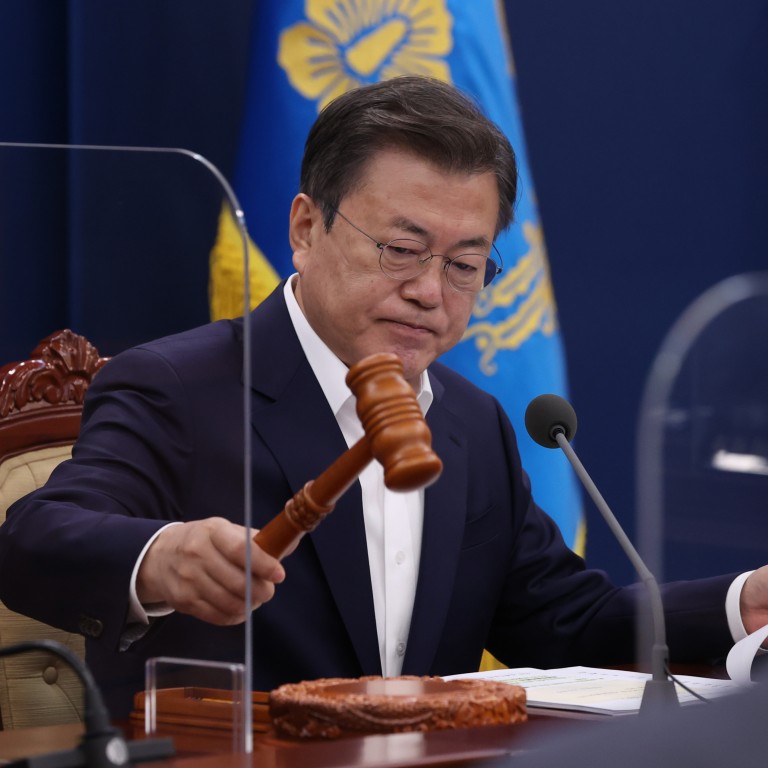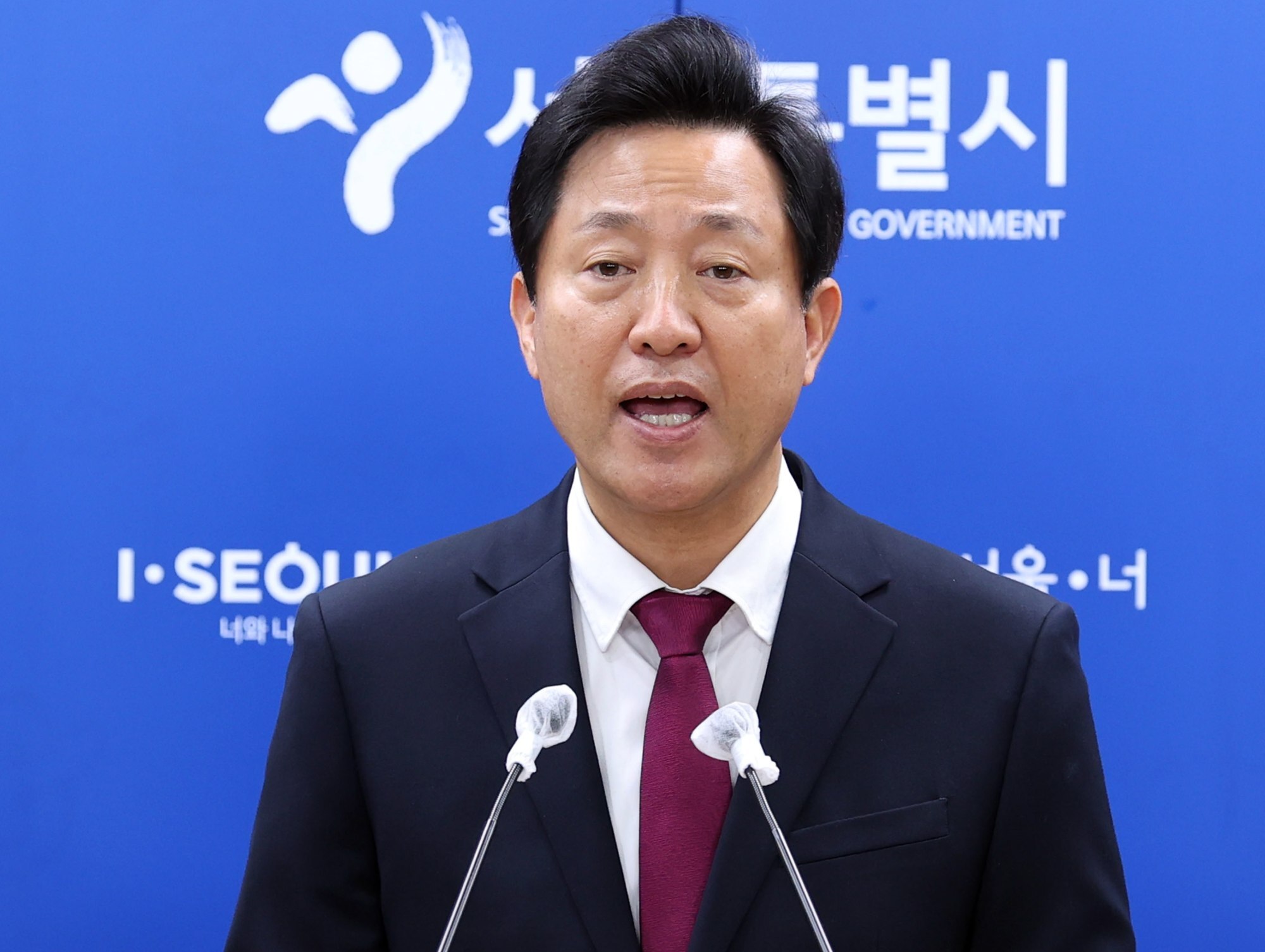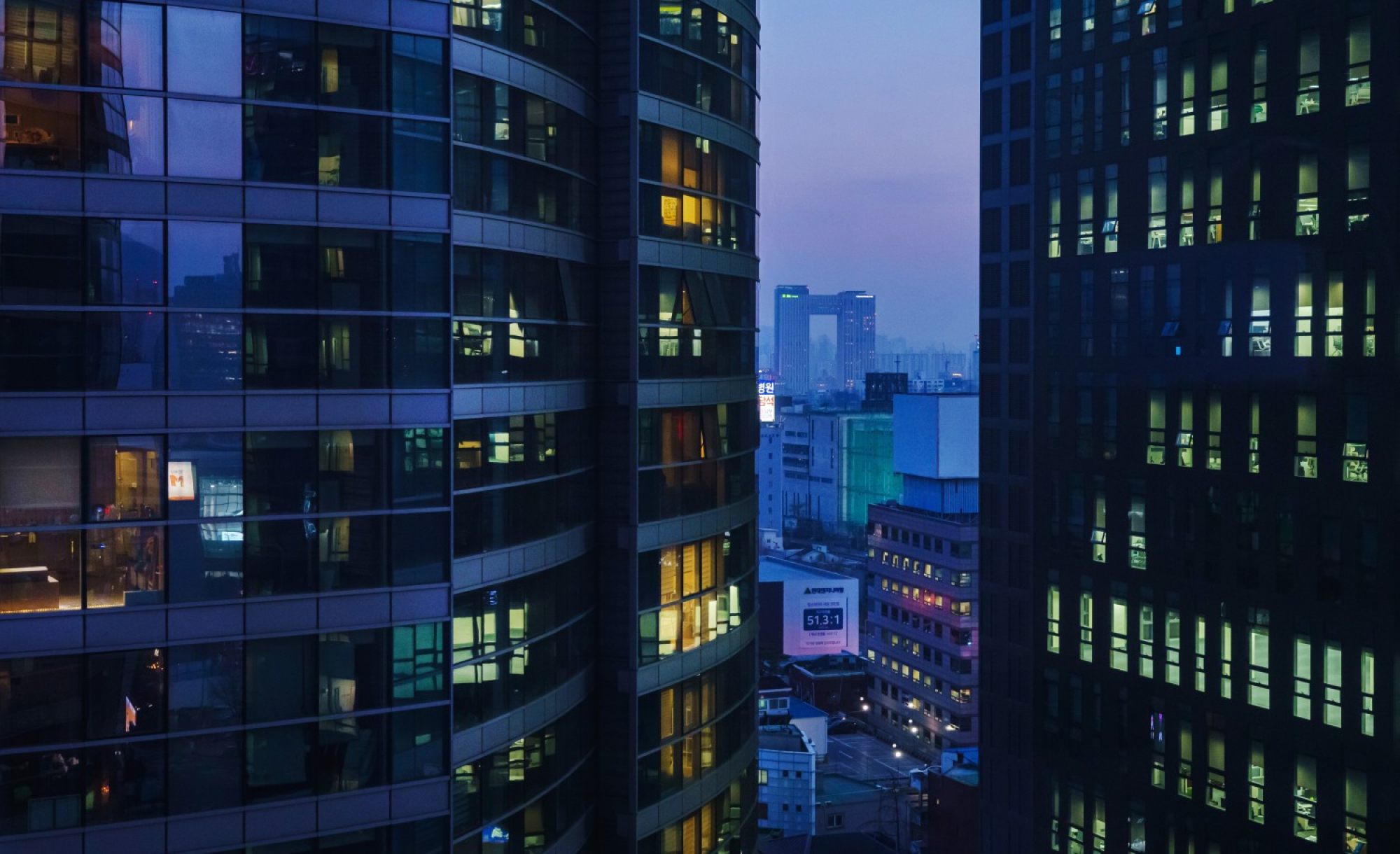
Why are South Korea’s young men turning against Moon Jae-in and his ruling party?
- Unpopular housing policies and a backlash against Moon’s perceived ‘feminist’ agenda has seen support for his Democratic Party administration collapse among Korean men in their 20s and 30s
- Not so among young women, however – meaning victory for the opposition is far from guaranteed at the next presidential elections set for March 2022
But when Koo again had a chance to cast his ballot during the Seoul mayoral by-election earlier this month, the 30-year-old financial specialist shunned the president’s Democratic Party in favour of the conservative opposition candidate, Oh Se-hoon.
Koo is among the countless young Koreans who feel let down by Moon’s progressives amid a series of corruption scandals and policy failures, including tighter mortgage rules that were introduced to cool soaring real estate prices but have only put home ownership further beyond reach.
“Last year, I rushed into looking for a starter home even before confirming my wedding venue as rental deposits and housing prices soared,” Koo said. “I found it hard to get loans as the bankers I met weren’t caught up with all the updates on housing-related policies and hesitated to provide me with loans.”

Young men, in particular, have turned against the ruling party in their droves since Moon’s election in 2017.
Nearly 73 per cent of male voters in their teens and 20s voted for Oh, who represents the right of centre People Power Party, in Seoul’s mayoral race on April 7, according to exit polls. That surpassed Oh’s vote share of 70 per cent among men in their 60s and above, a demographic who lived through Korea’s post-war restoration and industrialisation of the 1960s and 1970s and is known for its conservative political views.
Koo, who disagrees with the new credit restrictions as they hamstring “ordinary young people who barely have any assets”, said young men had been more affected by the changes than their female peers.
“Conventional marriage custom in Korea still requires the groom to get a house and bride to get furniture and home appliances, which results in more of an economic burden on the men,” he said.
Xi charms Moon as China and US compete for an ally in South Korea
The Seoul by-election was a bad defeat for Moon’s ruling party: Oh got 57.5 per cent of the vote and the Democratic Party’s Park Young-sun just 39.2 per cent.
Over the past four years, the average price of a 890 sq ft flat in Seoul has increased from 660 million won to 1.19 billion won (US$593,000 to US$1.07 million), according to progressive civil organisation the Citizens’ Coalition for Economic Justice – 36 times the average yearly salary in the South Korean capital.

In January, local media reported that the Ministry of Economy and Finance had instructed state-owned firms and government organisations to no longer consider military service – which Korean men must undergo for at least two years – when promoting employees.
“These policies fuel the anger of many Korean men in their 20s,” said Jin Seok-won, a 29-year-old Democratic Party supporter.
“They have a victim mentality against women because military duty, which is around two years long and takes place in harsh environments, is compulsory for most men but not for women,” he said. “If the district congresswomen quota is realised, more men would feel alienated.”
Many young men say they hate male politicians in their 40s and 50s, who have enjoyed privileges as men and promote feminism policies to get women’s votes
A petition calling for mandatory military service to be extended to women has garnered more than 234,000 signatures since its launch earlier this month, passing the threshold of 200,000 within 30 days that will require a government response – though it has also attracted derision from those who argue women remain disenfranchised in South Korean society.
“I think the younger generations feel hopeless,” said Lee Jong-hoon, a 36-year-old who voted for Oh in the by-election. “The government failed in most policies: the reconciliation gesture with North Korea didn’t really help our living standards, gender policies don’t attract support from men, and housing is harder than ever.
“Many young men say they hate male politicians in their 40s and 50s, who have enjoyed privileges as men and promote feminism policies to get women’s votes,” he added.
Young South Korean women are turning to suicide in ever greater numbers
The swing away from Moon’s party certainly seems more pronounced among young men than women. In the Seoul by-election, 44 per cent of women in their teens or 20s chose the Democratic Party’s Park, while 40.9 per cent voted for Oh.
Park Sun-mi, a 28-year-old lawyer, said the stronger support among young women for the ruling party could reflect their expectations of it delivering more female-friendly policies, despite the sexual harassment allegations that were made against Seoul’s former mayor, a Democratic Party member.
“Korea is still a male-dominated society,” she said. “Even in my law firm, I often feel that I’m regarded as a male lawyer colleague’s secretary.
“If you look into workplaces where most employees are female, such as day care centres, primary and middle schools, the main decision-makers are men. Women are normally excluded from ‘unofficial’ networking such as smoking breaks or drinking in hostess bars.”
How K-pop sex scandal exposes South Korea’s culture of toxic masculinity
Park rejected the notion that modern Korean society is somehow harsher on men than women. “I think the financial burden on men and women is almost equal nowadays,” she said. “It’s just that women care about more various issues than men do when voting on elections.”
South Korea’s next presidential elections are set to be held in March 2022. Though young men appear to be deserting Moon’s ruling party, victory for the opposition is far from guaranteed.
“It’s too early to predict which party or politician could win the next presidential election,” said Bong Young-shik, a research fellow at Yonsei University Institute for North Korean Studies. “The game changer could come in November, when the government plans to achieve Covid-19 herd immunity. Given that the vaccination rate of the first dose is less than 5 per cent, it’ll be a very tough game for the ruling party.”

